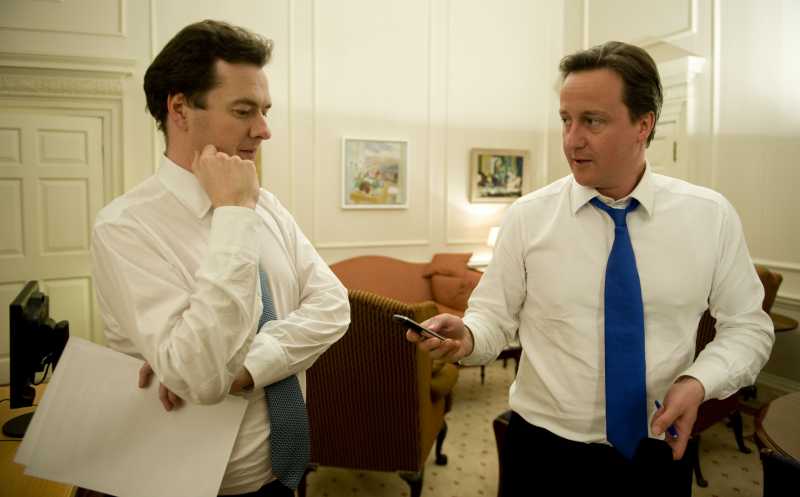The British economy has returned to pre-crisis levels by expanding 0.8% in the second quarter of this year.
On an annual basis gross domestic product (GDP) expanded by 3.1%.

Chancellor George Osborne said: “Thanks to the hard work of the British people, today we reach a major milestone in our long-term economic plan.”
But shadow chancellor, Ed Balls, said people were not feeling happier: “With GDP per head not set to recover for three more years and [with] most people still seeing their living standards squeezed this is no time for complacent claims that the economy is fixed.
The figures show the economy is now worth 0.2% more than it was at its peak in 2008, the Office for National Statistics (ONS) said.The opposition Labour party said the benefits of growth were unevenly spread and most workers, after six years of below-inflation wage rises, were being left behind. The service sector is the only part of the economy that has passed its previous 2008 peak, although that accounts for almost 80% of UK output. Other key sectors, including construction, industrial production and manufacturing, have yet to outstrip levels reached in 2008.
The UK economy is forecast to be the fastest growing among the G7 developed nations, according to the International Monetary Fund (IMF). On Thursday, the IMF predicted the UK would expand by 3.2% this year, up from a previous forecast of 2.8%.
Ed Balls, the shadow chancellor, in a statement said: “At long last our economy is back to the size it was before the global banking crisis – three years after the US reached the same point.
“But with GDP per head not set to recover for three more years and most people still seeing their living standards squeezed this is no time for complacent claims that the economy is fixed. Wages after inflation are down over £1,600 a year since 2010, housebuilding under this government is at its lowest level since the 1920s, and business investment is lagging behind our competitors.”
Most analysts were optimistic about the prospects for growth over the next couple of years, despite the threat of interest rate rises by the Bank of England. Threadneedle Street is expected to begin pushing up base rates later this year or next spring, but only gently and to a maximum 3%.
Capital Economics said it was confident GDP growth would exceed the IMF forecast of 3.2% this year and have staying power with 3% growth rates in 2015 and 2016.
Business groups were more cautious about the prospects for growth. David Kern, chief economist at the British Chambers of Commerce, said: “While it is welcome news that we have surpassed the pre-recession GDP peak of Q1 2008, this has occurred much later than in some of our major competitors, such as the US and Germany.
“It is important that we work to increase the contribution of exports and investment if this recovery is to become truly sustainable. In order to support the businesses driving the recovery, the Bank of England’s monetary policy committee must provide assurances that interest rates will not be raised until there is a clear case to do so.”